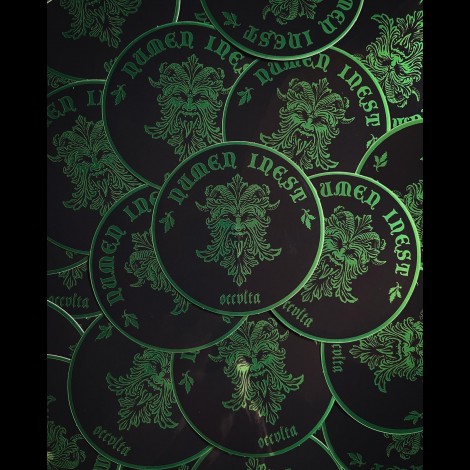





Sticker featuring Victoria Francés' illustration and Ovid’s sentence: NUMEN INEST.
The Numen could be understood as a divine power residing in a place or a divine force attributed to natural elements, seemingly inhabiting everything. Some experts suggest that the concept of numen changed over time, evolving from indicating a certain level of agency to signifying the presence of individual gods. Perhaps this is clearest in the testimony of Ovid, who offers us an explanation for the numen in his Fasti:
Under the Aventine Hill lies
A dark wood full of elms; in its presence
You might say, 'Here is a numen [NUMEN INEST].
We cannot know whether the numen that Ovid spoke of confirms the existence of an ancient Roman belief in agency, the animating presence of the forest and its inhabitants, or affirms that divinities dwell within the trees. What we do know is that the presence of a numen was strengthened and increased through relationship.
Statius’s Thebaid (45–96 CE) describes how the heroine Atalanta consecrates a divine name to an Arcadian oak through her worship:
Well known throughout the forests of Arcadia was an oak of fertile growth, which she herself had chosen from a multitude of groves and made sacred to Diana, and through her worship had endowed with divine power [numen].